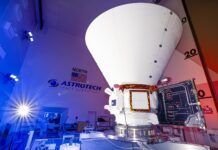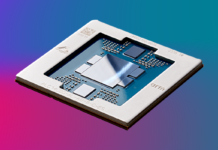In the ever-evolving landscape of technology and biology, a fascinating field known as Techbio is gaining momentum. This interdisciplinary domain merges data, technology, and biology to enhance scientific processes, particularly in the biopharmaceutical industry. In a recent episode of NVIDIA’s AI Podcast, host Noah Kravitz delves into this topic with Chris Gibson, the co-founder and CEO of Recursion. Together, they explore how Recursion leverages artificial intelligence (AI) and machine learning (ML) to expedite drug discovery and development on a large scale. This article will provide an in-depth look at their discussion, explaining the concepts in easy-to-understand language for our readers.
Background on Recursion
Recursion is a biopharmaceutical company that stands at the intersection of biology and technology. Founded by Chris Gibson, the company employs AI and ML to streamline the process of drug discovery and development. Traditionally, drug discovery is a lengthy and costly endeavor, often taking years and billions of dollars to bring a new drug to market. Recursion aims to change this by using AI to analyze vast amounts of biological data, thereby identifying potential drug candidates more quickly and efficiently.
Recursion’s Approach to Drug Discovery
At the heart of Recursion’s strategy is a unique approach to drug discovery that combines empirical data generation with generative AI predictions. Empirical data generation involves collecting real-world data from biological experiments. This data is then fed into generative AI models, which can predict new drug candidates based on patterns and insights gleaned from the empirical data. This dual approach not only speeds up the discovery process but also increases its accuracy, reducing the likelihood of costly failures in later stages of development.
Empirical Data Generation and Generative AI Prediction
Empirical data generation is a cornerstone of Recursion’s methodology. The company conducts high-throughput biological experiments to generate large datasets. These datasets are then analyzed using generative AI models. Generative AI is a type of artificial intelligence that can create new data samples based on existing data. In the context of drug discovery, these models can predict how different compounds will interact with biological targets, thus identifying promising drug candidates. This predictive capability significantly accelerates the drug discovery process, making it possible to identify and test new drugs in a fraction of the time it would take using traditional methods.
How Supercomputing is Accelerating Drug Discovery
Another critical component of Recursion’s success is its use of supercomputing. Supercomputers are incredibly powerful machines capable of processing vast amounts of data at lightning speed. By harnessing the power of supercomputing, Recursion can analyze complex biological datasets much more quickly than would be possible with standard computing resources. This capability is particularly important for tasks like molecular modeling and simulation, which require significant computational power. The use of supercomputing not only speeds up the drug discovery process but also enables more complex and accurate analyses.
What is Techbio?
Techbio is a term that encompasses the integration of technology, biology, and data to advance scientific research and development. In the context of biopharmaceuticals, Techbio involves using advanced technologies like AI, ML, and supercomputing to enhance the drug discovery and development process. By leveraging these technologies, companies can analyze biological data more effectively, identify new drug candidates more quickly, and bring new treatments to market more efficiently. Techbio represents a significant shift in the way biopharmaceutical research is conducted, moving from a labor-intensive process to a technology-driven approach.
The Future: Using Natural Language Prompts to Work with AI Systems
One of the most exciting developments in the field of AI is the use of natural language prompts to interact with AI systems. Natural language processing (NLP) is a branch of AI that enables machines to understand and respond to human language. By incorporating NLP into their workflows, companies like Recursion can create AI systems that researchers can interact with using everyday language. This capability makes it easier for scientists to query data, generate insights, and identify new research directions without needing to write complex code or understand the intricacies of the underlying AI models.
Recursion’s Plans for the Future
Looking ahead, Recursion plans to continue leveraging AI and ML to push the boundaries of drug discovery and development. The company aims to expand its use of generative AI models and supercomputing resources to tackle even more complex biological challenges. Additionally, Recursion is exploring the potential of NLP to make its AI systems more accessible to researchers and scientists. By continuing to innovate at the intersection of technology and biology, Recursion hopes to bring new treatments to market more quickly and efficiently, ultimately improving patient outcomes.
Good to Know: Related Innovations in AI and Healthcare
While Recursion’s work is groundbreaking, they are not alone in leveraging AI to advance healthcare. Several other companies and researchers are making significant strides in this area:
- Caristo Diagnostics: This company has developed an AI-powered solution for detecting coronary inflammation in cardiac CT scans. By providing patient-specific readouts, Caristo’s technology helps improve treatment plans and risk predictions for heart disease.
- Harrison.ai: Known for its AI solution annalise.ai, Harrison.ai serves as a “spell checker” for radiologists. The AI system flags critical findings in radiology images, enhancing the speed and accuracy of diagnoses and reducing the risk of misdiagnosis.
- Matice Biosciences: This company uses AI to study the regeneration of tissues in animal species known as super-regenerators, such as salamanders and planarians. By understanding how these species regenerate, Matice aims to develop new treatments that help humans heal from injuries without scarring.
- NVIDIA’s AI and Crowdsourcing Initiative: NVIDIA is exploring the fusion of AI, crowdsourcing, and machine learning to improve the thermo-stability of mRNA vaccines. This initiative aims to make vaccine distribution more accessible worldwide, particularly in regions with limited resources.
Subscribe to the AI Podcast
If you’re interested in staying up-to-date with the latest advancements in AI and its applications in various fields, consider subscribing to NVIDIA’s AI Podcast. Available on multiple platforms, including iTunes, Google Play, Amazon Music, Castbox, DoggCatcher, Overcast, PlayerFM, Pocket Casts, Podbay, PodBean, PodCruncher, PodKicker, Soundcloud, Spotify, Stitcher, and TuneIn, the AI Podcast features in-depth discussions with industry leaders and experts. By subscribing, you can gain valuable insights into how AI is transforming industries and shaping the future.
Make the AI Podcast Better
Your feedback is invaluable in helping improve the AI Podcast. If you have a few minutes to spare, consider filling out this listener survey. Your input will help shape future episodes and ensure the podcast continues to deliver high-quality, relevant content.
In conclusion, the integration of AI and ML in the biopharmaceutical industry, as demonstrated by companies like Recursion, represents a significant leap forward in drug discovery and development. By leveraging advanced technologies, these companies are not only accelerating the process of bringing new treatments to market but also improving the accuracy and efficiency of their research. As the field of Techbio continues to evolve, it holds the promise of transforming healthcare and enhancing patient outcomes on a global scale.
For more Information, Refer to this article.






























![How Samsung Integrates Accessibility into Its Home Appliances [Interview] How Samsung Embeds Accessibility and User-Centered Values Into Its Home Appliances](https://www.hawkdive.com/media/samsung-digital-appliances-accessibility-user-centered-values-bespoke-ai-family-hub-bona-lee_thumb72-218x150.jpeg)



